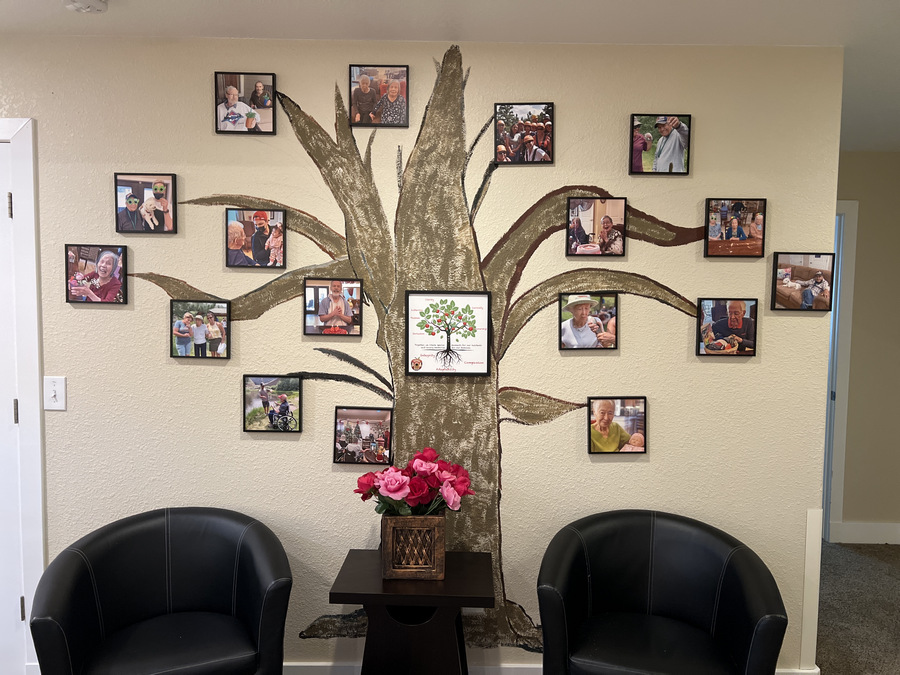About Memory Care Facility Charlotte
About Memory Care Facility Charlotte
Blog Article
Some Known Factual Statements About Memory Care Facility Charlotte
Table of ContentsThe Only Guide for Memory Care Facility CharlotteIndicators on Memory Care Facility Charlotte You Need To KnowHow Memory Care Facility Charlotte can Save You Time, Stress, and Money.The smart Trick of Memory Care Facility Charlotte That Nobody is Talking AboutExcitement About Memory Care Facility Charlotte
The national average in 2024 is $5,350/ month. The cost of Alzheimer's care in assisted living neighborhoods is roughly 20-30% even more. See the average Alzheimer's treatment cost in your state. Nearly all taking care of homes or proficient nursing facilities are equipped to offer services for those with Alzheimer's or mental deterioration. Most do not charge furthermore because comparatively these individuals do not need even more treatment than various other retirement home homeowners.Sharing a home reduces the price to 10-20% of that for a personal area. Grown-up day treatment centers, like nursing homes, typically do not charge added costs for individuals with Alzheimer's or dementia.
For most family members, the expenditures of caring for an enjoyed one with Alzheimer's or dementia are covered not by a single resource, but instead by contributions from a range of sources. Medicare, like the majority of wellness insurance coverage, does not set apart Alzheimer's and mental deterioration treatment from other problems such as heart illness.
Medicare will pay for 100% of the cost of nursing home care if it is medically needed for 20 days and 80% of the cost for an added 80 days. If a private with Alzheimer's calls for treatment in a psychiatric hospital, Medicare boosts the number of days they will provide support approximately 190 days
Some Known Details About Memory Care Facility Charlotte
Medicare does not pay for custodial or personal care that is provided in an assisted living home. The very same applies for home care and adult day treatment.
There is an exemption to this for individuals receiving hospice treatment in your home. Medicare will spend for homemaker services, that includes personal help for people determined to be in the last 6 months of their life. Memory Care Facility Charlotte. Medigap plans, or Medicare Supplementary Insurance Coverage, does not particularly provide fringe benefits for Alzheimer's individuals
These plans typically pay the 20% of the price of nursing home care that Medicare does not pay. New in 2019, Medicare Benefit (MA) strategies have the ability to supply some long-term treatment services and sustains as a supplementary health advantage, given they: Make up for physical impairmentsDiminish the effect of injuries or wellness conditionsReduce preventable emergency clinic utilization Examples of potentially offered benefits, which can be really critical for persons with Alzheimer's, consist of: Grown-up day careHome modifications (mobility device ramps, grab bars)Individual emergency reaction systemsRespite carePersonal treatment assistanceHomemaker servicesMeal shipment In 2020, MA plans are further expanded their additional advantages to assist persistantly sick persons.
The Only Guide for Memory Care Facility Charlotte
The requirement being that with the invoice of benefits, the care recipient has a good chance of improvement in wellness or operating, or a minimum of keeping the very same degree of health and operating. The brand-new advantages can be customized to the particular needs of MA plan enrollees. For circumstances, a senior with Alzheimer's condition may have the ability to get wandering assistance solutions.
Really couple of, need a particular diagnosis of Alzheimer's or mental deterioration. Instead, they take into consideration one's ability or failure to care for themselves by accessing their capacity to perform their activities of day-to-day living. From a practical viewpoint, mid to late phase Alzheimer's people normally receive Medicaid benefits quite easily. For more details on Medicaid and each state's waivers, please utilize the adhering to web links: General Medicaid, Home Care Waivers, Assisted Living Waivers, Adult Daycare Waivers, and Adult Foster Treatment Waivers.
While not especially made for Alzheimer's patients, considered that lots of Alzheimer's patient are not working, have low revenues and need daily help, it is rather usual for these individuals to get approved for these programs. See a total checklist of state non-Medicaid aid programs. Along with the much more general aid programs, a number of states have programs created especially for people with Alzheimer's, mental deterioration or associated conditions.
Getting My Memory Care Facility Charlotte To Work
 They merely need a diagnosis of Alzheimer's, dementia or various other relevant memory problem to receive the program. Respite treatment is short-term aid given to the key caregiver to enable them a break from caring for a specific with Alzheimer's or dementia. It can be given in the home, in an adult day care facility, or often in an assisted living residence or other property setting.
They merely need a diagnosis of Alzheimer's, dementia or various other relevant memory problem to receive the program. Respite treatment is short-term aid given to the key caregiver to enable them a break from caring for a specific with Alzheimer's or dementia. It can be given in the home, in an adult day care facility, or often in an assisted living residence or other property setting.There are numerous various companies and programs providing break treatment solutions. It is worth our website keeping in mind that typically times these are home treatment business offering home treatment and marketing it as respite treatment also though they are billing the full per hour rate.
The Alzheimer's Foundation of America provides "Family members Respite Care Grants" by funding local, charitable, member companies. These member companies function directly with the households to administer the grants. It deserves noting that regional companies occasionally incorporate funds with various other sources. The name "Family members Break Treatment Grants" might not constantly be utilized.
Very few, call for a details medical diagnosis of Alzheimer's or mental deterioration. Instead, they take into consideration one's capability or failure to care for themselves by accessing their capability to perform their activities of everyday living. From a useful viewpoint, mid to late phase Alzheimer's patients typically qualify for Medicaid benefits fairly easily.
The Greatest Guide To Memory Care Facility Charlotte
While not specifically designed for Alzheimer's individuals, considered that lots of Alzheimer's person are not working, have low earnings and need day-to-day aid, it is fairly common for these individuals to receive these programs. See a total listing of state non-Medicaid aid programs. In enhancement to the a lot more general help programs, a number of states have programs designed specifically for individuals with Alzheimer's, dementia or associated problems.
 They just require a diagnosis of Alzheimer's, mental deterioration or various other relevant memory problem to get the program. Break care is temporary help provided to the primary caretaker to enable them a break from caring for a private with Alzheimer's or dementia. It can be given in the home, in an look here adult preschool, or in some cases in an assisted living residence or various other property setting.
They just require a diagnosis of Alzheimer's, mental deterioration or various other relevant memory problem to get the program. Break care is temporary help provided to the primary caretaker to enable them a break from caring for a private with Alzheimer's or dementia. It can be given in the home, in an look here adult preschool, or in some cases in an assisted living residence or various other property setting.There are various companies and programs providing the original source break treatment services. It is worth noting that most of the times these are home treatment firms selling home care and marketing it as break care also though they are billing the complete hourly rate. There are also federally financed programs that supply minimized price or totally free reprieve care, such as the Lifespan Break Treatment, the National Household Caregiver Support Program, as well as programs certain to private states consisting of Florida's Project R.E.L.I.E.F., New Jersey's Statewide Break Treatment, and Connecticut Statewide Respite Treatment Program.
The Alzheimer's Foundation of America uses "Household Respite Care Grants" by moneying local, charitable, participant companies. The name "Family Reprieve Care Grants" might not always be made use of.
Report this page